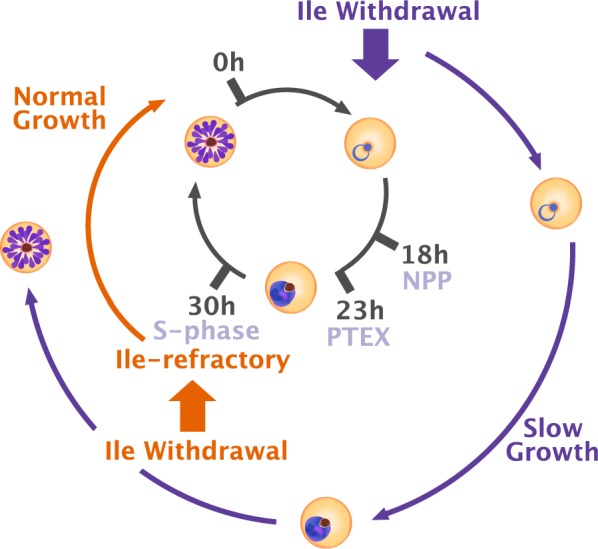Fig. 5.

Plasmodium falciparum enters a cell cycle stage-dependent slow growth program upon extracellular isoleucine removal. If isoleucine is removed in the early stages of the cell cycle, P. falciparum enters a state of slow growth in which it can complete schizogony and reinvade new erythrocytes. If isoleucine is removed after approximately 30 h post-invasion, the parasite continues schizogony at the normal rate of growth. This refractory point coincides with the onset of S-phase and occurs well after establishment of the New Permeability Pathway (NPP) and the PTEX-dependent growth arrest point
